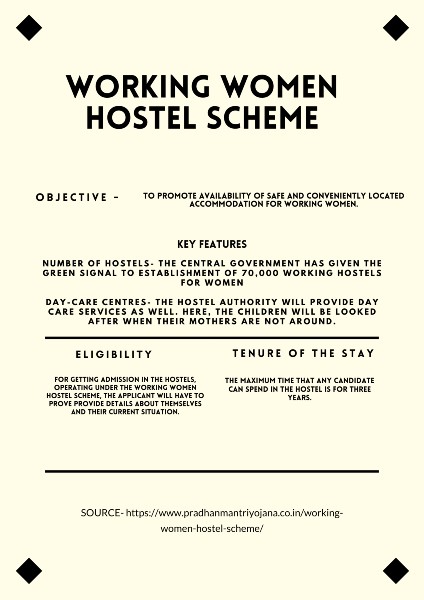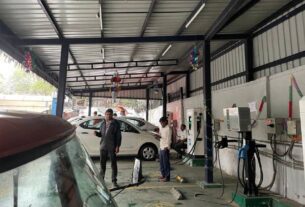Most working women hostels are not providing day-care centres for the children of the occupants.
Many working women’s hostels do not have day-care centres for children, preventing working mothers from choosing such hostels.
Gloria, who lives in a working women’s hostel and is separated from her son since she works as a nurse in the city, highlighted her concern about the absence of child care facilities. She said, “I will be going back to Kerala soon.”“I was staying in a working women hostel before 2020, and it had no day-care centres, and if tomorrow when I have kids, I think it will pose a great problem if hostels don’t provide day-care centres,” said Aditi.
Under the working women hostel scheme, all the hostels are supposed to run a zero-profit day-care centre, where working mothers can leave their children while they are at work.
The annual reports from the Ministry of Women and Child Development show that there were 19 day-care centres in 2016 and 52 working women hostels. While the number of hostels increased to 62 in the recent years, data for day-care centre is missing from the reports from the year 2018-2020.
A report by Haryali Foundation found that only two working women hostels in Bangalore have day-care centers and are following the scheme’s guidelines properly.
Most hostels are not aware of day-care facilities. Teressa, a warden at a working women’s hostel in Bangalore said that she has no idea about day-care facilities in such hostels.
Day-care centres (DCC) look after the children of working mothers. These DCCs are an important part of the Working Women Hostel Scheme. The scheme states that every hostel should have a clean and well-maintained day-care centre. The Ministry of Women and Child Development in 2017–18 released Rs. 973.66 lakhs to run day care centres in these hostels.
Priyanka Mary Frances, director, Department of Women and Child Development (DWCD), said, “We have sent a proposal to the central government for funds to build new hostels, and for completing the ones that are under construction.”
Sudeshna Mukherjee, professor in Bangalore University said that some alternative measures can be undertaken to improve day care facilities for children in these hostels. She said that the government can come up with a model where the working women hostels are next to or nearby old age homes. This would be “cross beneficial” and eliminate the need for separate day-care centres. Yet, it would fulfil the working mothers’ needs for having a safe and secure place for their kids while they are at work. She added, “More anganwadis can be built instead of having a separate day-care centre.”
In addition to this, she suggested that Karnataka take leaf from Mumbai’s book. She explained, “In Mumbai, there was a model where railway and bus stations had childcare centres, and women will drop their kids while heading out for work.”





